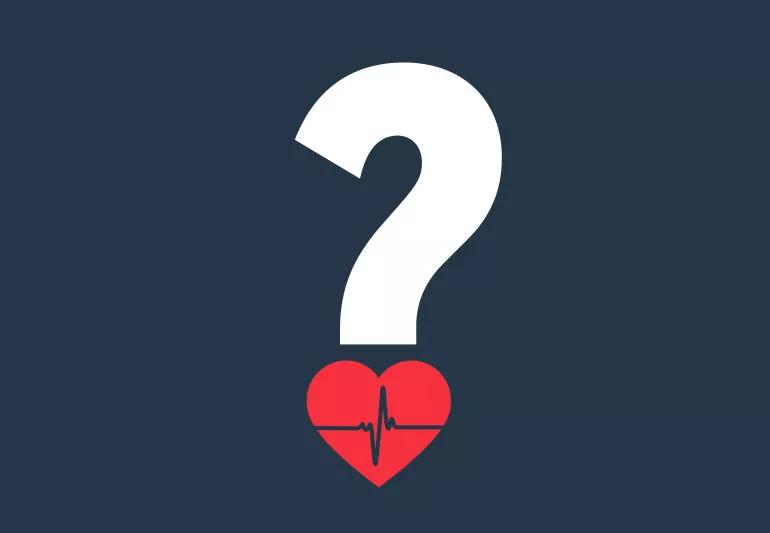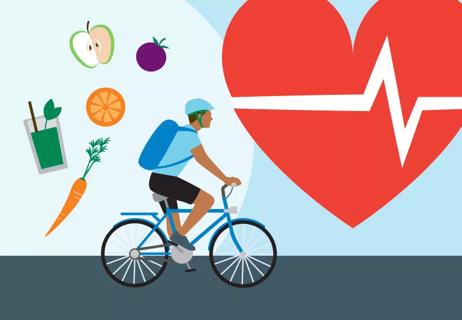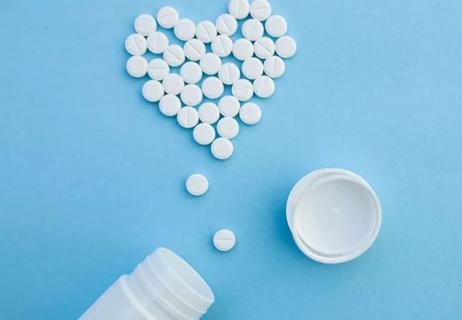Knowing the facts can make all the difference

Butterflies in the stomach can signal excitement or nervousness, but fluttering in the chest can signal a short circuit in the heart’s natural electrical wiring called arrhythmia. Atrial fibrillation (Afib), the most common arrhythmia, is an off-speed rhythm in the heart’s upper chambers.
Advertisement
Cleveland Clinic is a non-profit academic medical center. Advertising on our site helps support our mission. We do not endorse non-Cleveland Clinic products or services. Policy
Afib may be linked to conditions such as high blood pressure (hypertension), coronary artery disease, heart valve disease, heart failure, chronic lung disease or just part of the aging process, among others. But in 10% of cases, Afib isn’t associated with any other disease.
Afib can cause heart palpitations, dizziness, fatigue, chest discomfort and shortness of breath. However, up to 30% of Afib episodes cause no symptoms at all. Electrophysiologist Walid Saliba, MD, addresses some common myths about Afib:
Fact: Atrial fibrillation is almost always a recurring disease and lifelong treatment is needed to minimize symptoms and to avoid stroke and heart failure. Early on, episodes of Afib tend to be sporadic and self terminating. These are called paroxysmal atrial fibrillation.
“Over time, episodes usually become more frequent and last longer,” says Dr. Saliba. “Up to 30% of Afib episodes cause no symptoms at all, but treatment is still needed to prevent stroke in high risk patients.”
Treatment includes lifestyle changes, medicine, procedures or surgery. Talk to your cardiologist to find the best treatment for you.
Fact: Electrical cardioversion can “shock” the heart back to normal rhythm, but it does not guarantee that normal rhythm will be maintained. Medication or ablation may be needed to maintain normal heart rhythm and minimize the risk of recurrence of the arrhythmia.
Advertisement
“Up to three types of medication are used in combination to treat Afib: those that control heart rate, such as beta blockers; anti-arrhythmic drugs to help maintain normal rhythm; and anticoagulants, also known as blood thinners, to prevent blood clots and reduce the risk of stroke,” says Dr. Saliba.
Sometimes, a pacemaker is used to treat the slow heart beat that results from using these medications to treat Afib. However, the pacemaker by itself does not convert or help maintain normal rhythm.
Fact: Medication will not cure Afib, but it will relieve symptoms by decreasing the frequency and duration of episodes. Reducing someone’s episodes from frequent to occasional is considered adequate treatment as long as the symptoms don’t trouble them. However, medications tend to become less effective over time and when that happens, other treatment modalities such as catheter ablation is more likely to help.
Fact: Catheter ablation uses radiofrequency (heat) energy or cryoenergy (intense cold) to interrupt faulty electrical pathways in the heart. Sometimes more than one catheter ablation procedure is needed to get the desired result.
“The success rate of 70 to 80% after one catheter ablation goes up to 90% after a second or third one if there is no underlying heart disease,” says Dr. Saliba. “When Afib is chronic or when there is underlying heart disease and the heart’s upper chambers (atria) are usually severely enlarged, maze surgery or Hybrid procedure (which includes surgery and ablation) may be recommended.”
Fact: The decision to continue or stop anticoagulation meds for afib depends upon the risk factors for stroke in each individual patient rather than on the success of the ablation.
Doctors calculate stroke risk in patients with Afib using a formula called the CHA₂DS₂-VASc Score. This score is based on the following risk factors:
“Sometimes, a patient has a history of bleeding and cannot take long term blood thinners,” says Dr. Saliba. “In such patients, a procedure to occlude the left atrial appendage (LAA: an outpocketing of the left atrium where clots tend to form in atrial fibrillation) with a special device is recommended. This can reduce the risk of stroke without the need for long term blood thinners.”
Fact: Afib cannot be totally cured.
“Ablation or surgery offers the closest possible symptom relief,” says Dr. Saliba. “Although there is no rush to undergo ablation if you are doing well on medication, it offers the alternative to stop the medication, especially if a patient is experiencing side effects. Ablation is safe even for patients in their 60s and 70s.”
Advertisement
Episodes of Afib can be triggered by stress, sleep apnea, alcohol and caffeinated beverages. Your cardiologist will be able to answer any concerns you may have. Meanwhile, to minimize symptoms of Afib and to improve heart health, it’s important to make a few lifestyle changes:
Advertisement
Learn more about our editorial process.
Advertisement

Opt for plant-based foods and consider limiting alcohol and caffeine

Having atrial fibrillation increases your risk of stroke — but blood thinners can help for many people

Making healthy lifestyle changes ahead of surgery can help you avoid AFib after

The short answer from a cardiovascular researcher

The short answer from a cardiologist

A correct prescription helps your eyes see clearly — but as natural changes occur, you may need stronger or different eyeglasses

Eating heart-healthy foods, moving around more and getting quality sleep are a few ways to get started

The benefits of these drugs typically outweigh potential risks — but talking about your eye health and GLP-1s with your provider is advised

Wearing a scarf, adjusting your outdoor activities and following your asthma treatment plan can help limit breathing problems

Your diet in the weeks, days and hours ahead of your race can power you to the finish line

When someone guilt trips you, they’re using emotionally manipulative behavior to try to get you to act a certain way